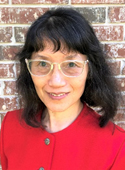Speaker
Hong Liang, Texas A&M University, USA

Atomic Wear in CMP
Hong Liang, Mechanical Engineering, Texas A&M University
The wear process of materials has played key roles in manufacturing such as polishing. In early 1980s, chemical-mechanical polishing (CMP) became an enabling technology to fabricate integrated-circuits for microelectronics. Thanks to CMP, miniaturization of electronic devices has been made possible that changed our life ever since. Today, the CMP process has been widely adapted in sectors that need perfection in their products’ surface, flat, curved, textured, or complicated shaped, made of any materials. The process of CMP is to remove materials based on the principles of wear. Because of high precision control, super finish is achieved with assistance of nanoabrasive particles, slurry pH, and surface and electrochemistry. In this presentation, recent understanding in the interactions between polishing components will be reviewed. Discussion will then focus on the synergy of surface activation, passivation, and mechanical abrasion. This will lead to the evidence of and conditions needed for the wear at the atomic scale.
Dr. Hong Liang is professor of Mechanical Engineering at Texas A&M University. She has been studying wear mechanisms of materials in various fundamental conditions as well as industrial applications. Her interests in CMP started when she joined the microelectronic industry almost 30 years ago. After becoming a faculty member, she conducted fundamental investigation in CMP by developing in situ techniques to probe interfacial interactions and to pin point surface chemistry. Her research group has published more than 350 articles. Professor Liang is a fellow of the American Society of Mechanical Engineers and a fellow of the Society of Tribologists and Lubrication Engineers. She is an editor of Tribology International and associate editor of a few other journals in the field of tribology and surface science.
« Go Back